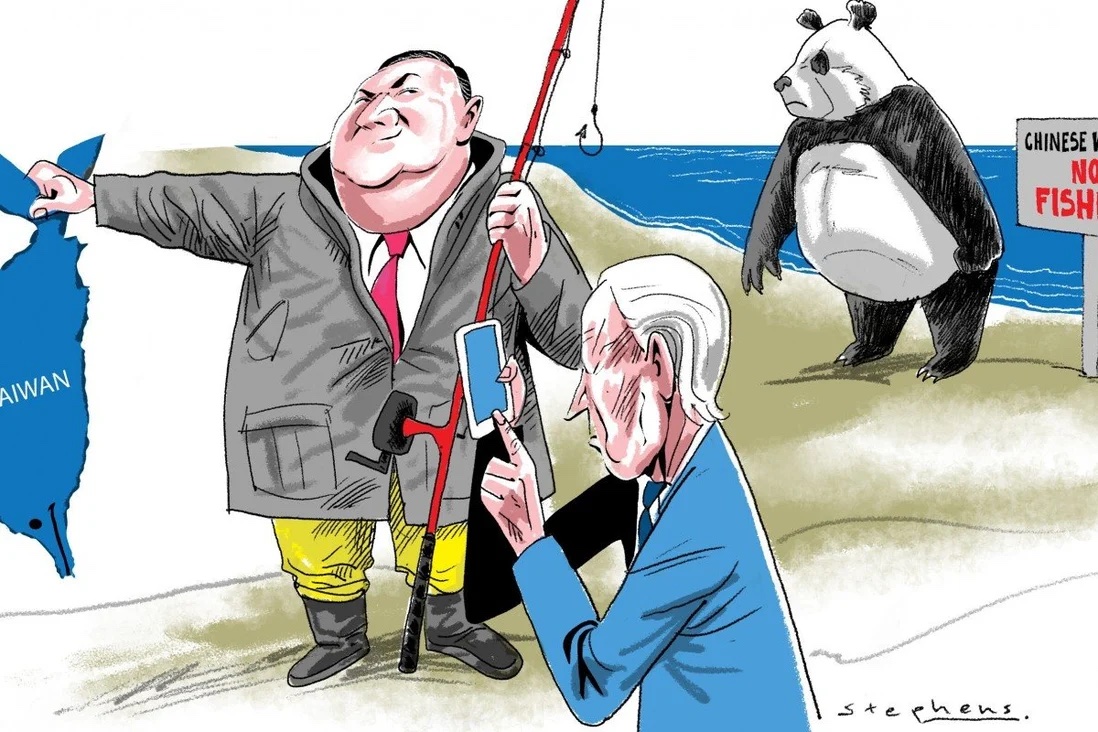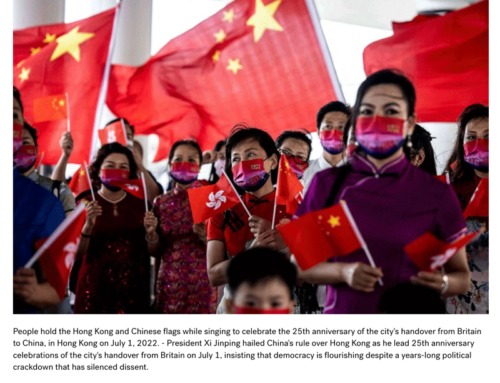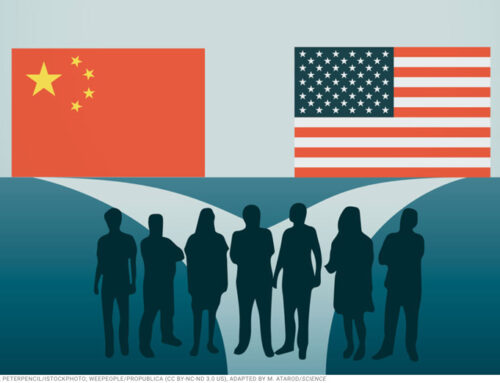David Zweig
South China Morning Post
18 January 2021, 1:00am:
-
By putting Taiwan’s status regarding the United States and China at the top of President-elect Joe Biden’s foreign policy agenda, he has introduced a serious roadblock to improved relations between the incoming administration and Beijing
US Secretary of State Mike Pompeo is probably strutting around and feeling his oats, having accomplished several goals simultaneously with his decision to lift all unofficial constraints on US-Taiwan relations in effect as of 2021.
No doubt he wanted to go out in glory, supporting those in the US Congress and US citizens who favour even stronger ties with Taiwan. Such a move, he hopes, will position him if he makes a run for the presidency in 2024. I am sure he also took great pleasure in poking China in the eye one more time on his way out the door.
But by putting Taiwan’s status regarding the United States and China at the top of President-elect Joe Biden’s foreign policy agenda, he has introduced a serious roadblock to improved relations between the incoming administration and the government in Beijing.
There are concerns he hoped to trigger a military confrontation with China, but the US is ill-prepared today for war with China because of the current crisis within the US body politic. President Donald Trump has abdicated the responsibilities of office except for trying to overturn the election he lost.
He has decimated his national security establishment, and communications between the outgoing Department of Defence officials and the incoming Biden team has been poor. In fact, the timing of this statement could not have been worse as it gives the People’s Liberation Army a reason to consider launching an attack on Taiwan precisely when the US is internally distracted and institutionally weak.
Fortunately, moderate foreign policy commentators in China are calling for patience in response to this provocation. They hope the incoming Biden administration will be amenable to a more positive relationship with China.
Yet they do so in the belief that Biden will undo Pompeo’s Taiwan initiative once he comes into power. Some also believe that once Biden is in office, “he needs to fully overturn the Trump legacy, which would include certain adjustments to current China and Taiwan policies”.
In China’s eyes, such a step has become a political necessity if Washington and Beijing are to improve ties. China’s hardline media outlet Global Times says China must push the incoming Biden administration to overthrow the decisions made by the Trump administration and “invalidate the incumbent government’s actions that stepped out of line”.
Will Biden take the steps China is expecting? It is unlikely. According to Ryan Hass of the Brookings Institution, the best China can expect is an internal study by the Biden administration about the appropriate self-constraints that should be maintained. Even before Pompeo’s statement, the US government has taken many informal steps that strengthen US-Taiwan ties.
In particular, after the 1995-96 Taiwan Strait crisis which brought the US and China close to war, the US and Taiwan have engaged in what the Centre for Strategic and International Studies in Washington has called a “dense architecture of dialogues”.
Biden’s foreign policy planning reflects these trends. According to Hass, while US policy in the past emphasised that the peaceful resolution of the Taiwan issue must be “consistent with the wishes of people on both sides of the Taiwan Strait”, the Biden policy says the peaceful resolution of cross-straits issues must be “consistent with the wishes and best interests of the people of Taiwan” while still upholding the one-China principle.
This shift in wording takes the possibility of peaceful reunification off the table and reflects the dramatic change in US policy towards Taiwan since the days when former president Barack Obama was in the White House and Joe Biden was his vice-president.
Do not expect Taiwan to go away as a source of potential military conflict between the US and China. In the past, China’s leaders might have felt military intimidation would pressure the Taiwanese government to accept Beijing’s terms for political dialogue. US policy pronouncements aside, Taiwan could not feel fully confident that, if attacked, the US would come to the rescue in part because most Americans did not favour sending US forces to protect Taiwan.
However, as America’s view of China’s threat to US security has intensified and created a bipartisan agreement for a more hostile policy towards China, US policy on Taiwan has evolved as well. Today, if China chooses to be more aggressive in its efforts to use the threat of force to pressure Taiwan, the US will respond much more forcefully with an array of political and military steps.
Whatever his original motivation, Pompeo has brought the changed nature of American policy on Taiwan out of the shadows, where it was quietly getting much tougher, and into the limelight for all to see. Thus, the Biden administration could soon find itself under pressure from Beijing to articulate how its policies on cross-straits relations differ from those of the Trump administration.
How will China respond when it finds that Biden’s underlying views on Taiwan’s international status are similar to those of the Trump administration and that Biden is willing to take postures that will undoubtedly antagonise relations between the world’s two most powerful countries?
David Zweig is Professor Emeritus at the Hong Kong University of Science and Technology and director of Transnational China Consulting Limited (HK)






Leave A Comment